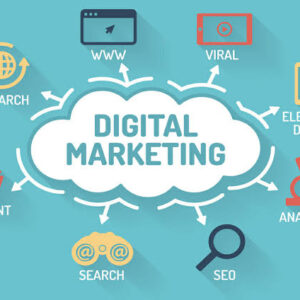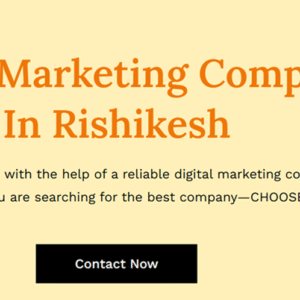In today’s fast-paced digital landscape, content marketing is evolving rapidly—and artificial intelligence (AI) is leading the transformation. From automating content creation to optimizing campaigns in real-time, AI tools are empowering marketers to work smarter, faster, and more effectively. Whether you’re a solo entrepreneur or a seasoned marketing team, understanding how to leverage AI Content Marketing Tool is crucial for staying competitive and relevant in 2025.
What Are AI Content Marketing Tools?
AI content marketing tools are software applications powered by artificial intelligence technologies such as machine learning, natural language processing, and data analytics. These tools help streamline and enhance various aspects of content marketing—from planning and creation to distribution and performance analysis.
Key Benefits of AI Tools in Content Marketing:
Improved Efficiency and Speed:
AI-powered tools can generate blog posts, social media captions, product descriptions, and more in seconds. This drastically reduces the time spent on manual writing and allows marketers to focus on strategy.
Enhanced Content Quality:
AI platforms analyze top-performing content across the web and provide suggestions for tone, structure, readability, and SEO. This ensures your content not only ranks well but also resonates with your audience.
Data-Driven Decision Making:
With real-time analytics and predictive modeling, AI tools help marketers identify what content will perform best and when to publish it. This increases engagement and boosts ROI.
Must-Have AI Content Marketing Tools in 2025:
1. AI Writing Assistants:
These tools generate high-quality content marketing using natural language generation (NLG). They’re perfect for creating blog posts, ad copy, emails, and landing pages. Features typically include grammar checking, readability analysis, tone adjustment, and even language translation.
2. Content Optimization Platforms:
These platforms scan your content and compare it with high-ranking competitors. They suggest keyword improvements, internal linking strategies, and content structure enhancements to boost visibility in search engines.
3. Social Media Scheduling & Automation Tools:
AI-driven social media tools analyze audience behavior and automatically schedule posts at optimal times. They also suggest trending hashtags and repurpose existing content for different platforms.
4. AI-Powered SEO Tools:
These tools go beyond basic keyword suggestions. They offer insights on content gaps, backlinks, and search intent. Many now include AI content briefs that recommend word count, structure, and questions to address in your article.
5. Customer Insights and Personalization Engines:
AI tools can analyze user data to tailor content recommendations for each visitor. This level of personalization increases engagement and helps drive conversions.
How to Choose the Right AI Tools for Your Marketing Strategy:
Understand Your Needs:
Identify your key content marketing challenges. Are you struggling with content volume, SEO rankings, or audience engagement? Your pain points will guide you toward the most relevant tools.
Evaluate Integration and Usability:
Look for tools that integrate seamlessly with your existing marketing stack, such as your CMS or CRM. Also, consider ease of use—an intuitive interface can save you hours of training time.
Analyze Reporting and Analytics:
Choose AI tools that offer transparent reporting so you can measure success, track KPIs, and refine your content strategies continuously.
Real-World Applications of AI in Content Marketing:
-
E-commerce: AI tools generate product descriptions, headlines, and promotional emails in minutes.
-
Bloggers & Publishers: Content ideation and SEO optimization ensure better ranking and more traffic.
-
Agencies: Automated reports and content workflows help scale efforts across multiple clients.
-
B2B Marketers: Tools assist in creating personalized email campaigns and long-form articles backed by data.
Future Trends in AI Content Marketing:
The future of content marketing lies in hyper-personalization, visual content generation (like AI video and images), and voice search optimization. AI is also advancing toward emotional intelligence, allowing it to create more human-like, emotionally resonant content.
Conclusion:
AI content marketing tools are not a replacement for human creativity—they’re a powerful ally. By automating the repetitive and data-heavy parts of your workflow, these tools free up your time to focus on strategic and creative tasks. With the right AI tools in your arsenal, you can elevate your content marketing, improve audience targeting, and boost your overall ROI.
FAQs:
What is the best AI content marketing tool for beginners?
AI writing assistants with built-in templates and easy interfaces are ideal for beginners. They typically include tutorials and support to help users get started quickly.
Can AI completely write my blog posts?
AI can draft full blog posts, but it’s best to review and edit them for accuracy, tone, and originality. Human oversight ensures the content aligns with your brand voice.
Are AI content tools SEO-friendly?
Yes, many AI content tools are designed with SEO in mind. They suggest keywords, improve readability, and offer insights to enhance on-page SEO.
Do AI tools support multiple languages?
Many AI content tools support multilingual content creation, making them useful for international marketing campaigns.
Will using AI affect my website’s search rankings?
As long as the content is valuable, original, and follows SEO best practices, AI-assisted content can positively impact rankings. Avoid using AI to produce duplicate or low-quality content.









